Reading skills development Normal Phonics Worksheets
5 filtered results
-
From - To
Discover the importance of developing strong reading skills with our Normal Phonics Worksheets! Designed for early learners, these engaging worksheets focus on phonics fundamentals that enhance reading proficiency and comprehension. Our resources support children in recognizing letters, sounds, and blending techniques, making the reading process enjoyable and effective. Each worksheet encourages practice through fun activities, promoting retention and mastery of essential phonemic concepts. Perfect for classroom use or at-home learning, our phonics worksheets help nurture a love for reading in your child. Explore our collection today and watch your little reader thrive on their literacy journey!
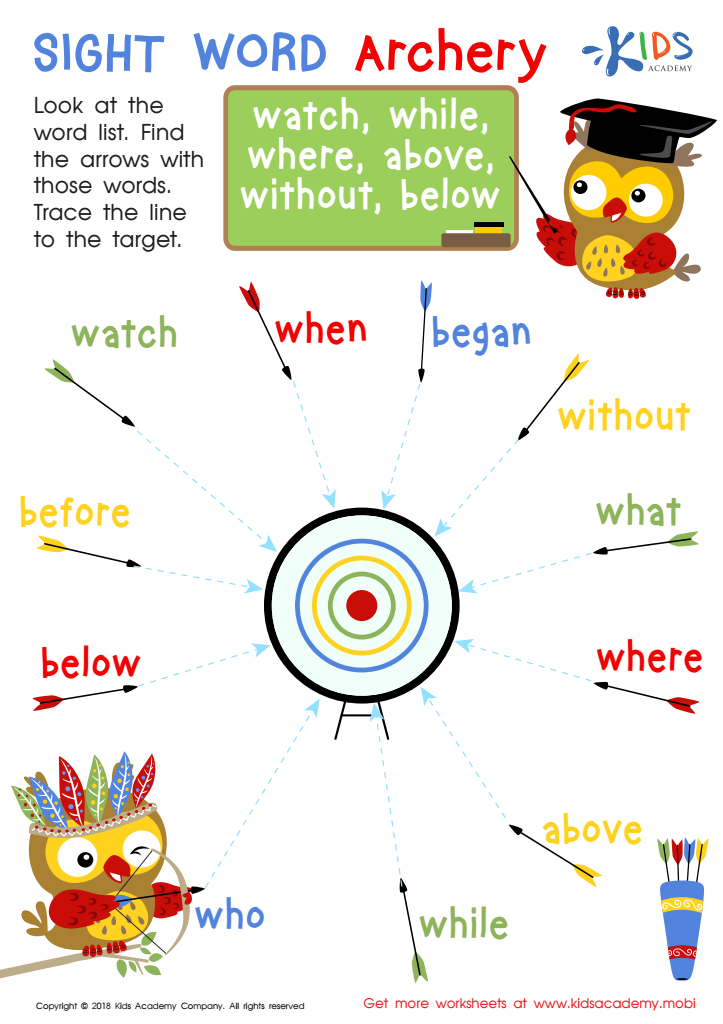

Sight Word Archery Worksheet
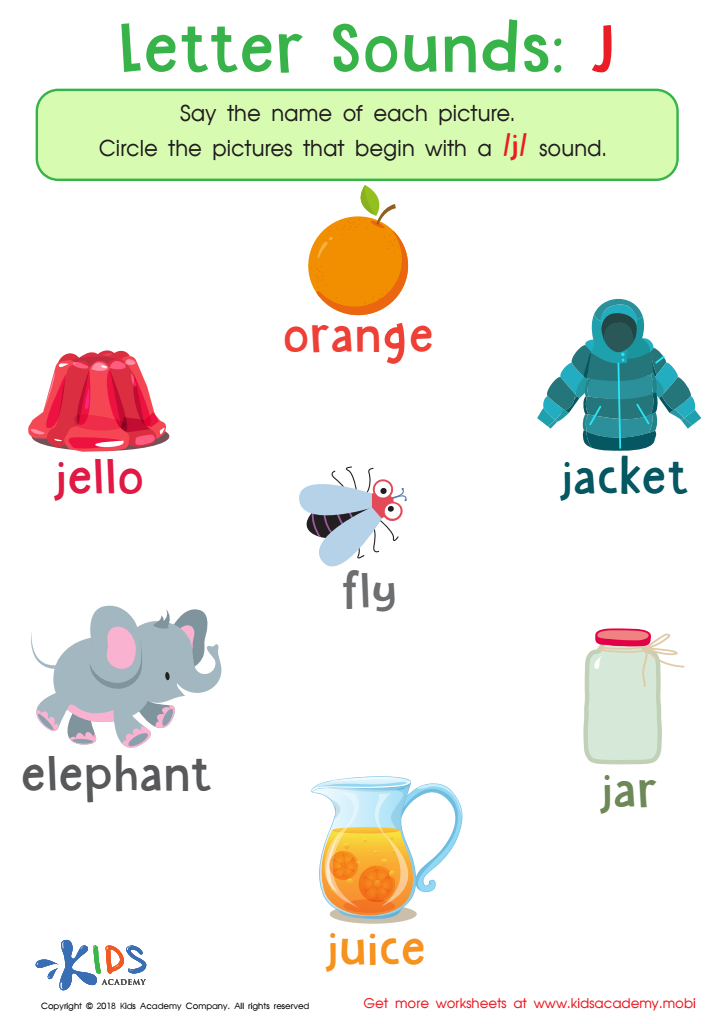

Letter Sounds: J Printable Worksheet
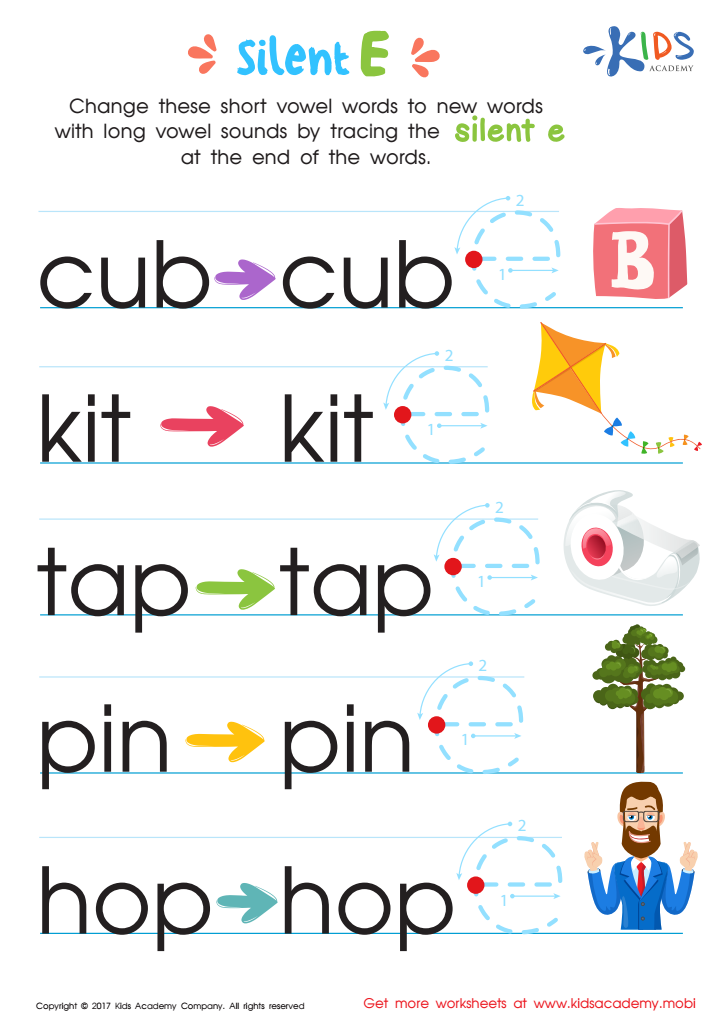

Silent E Words Worksheet
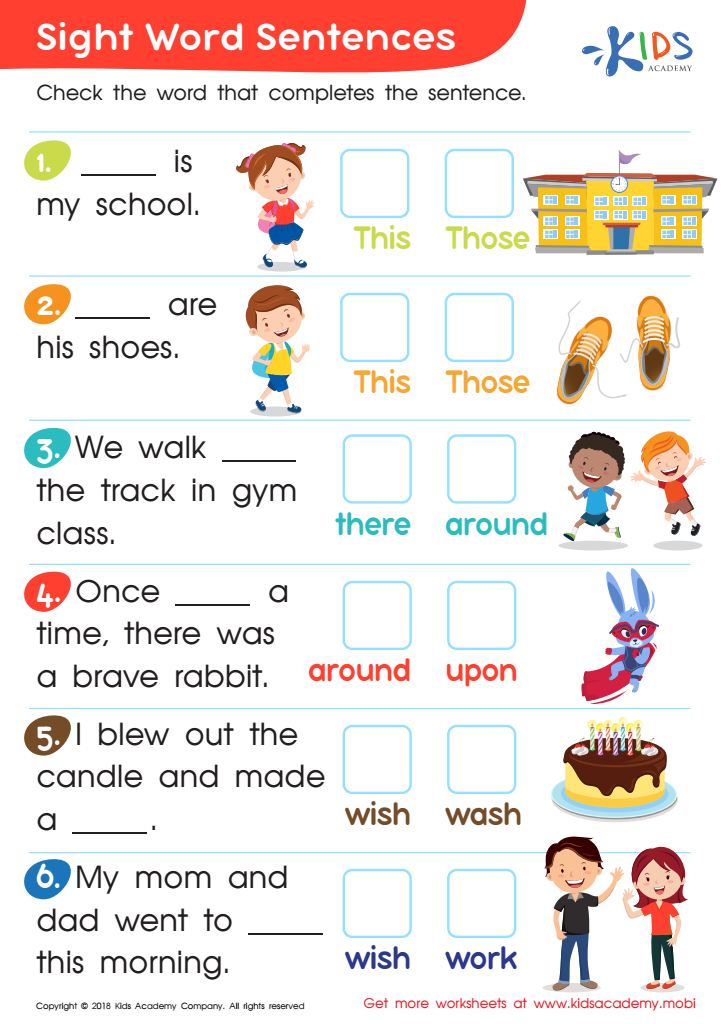

Sight Word Sentences Worksheet
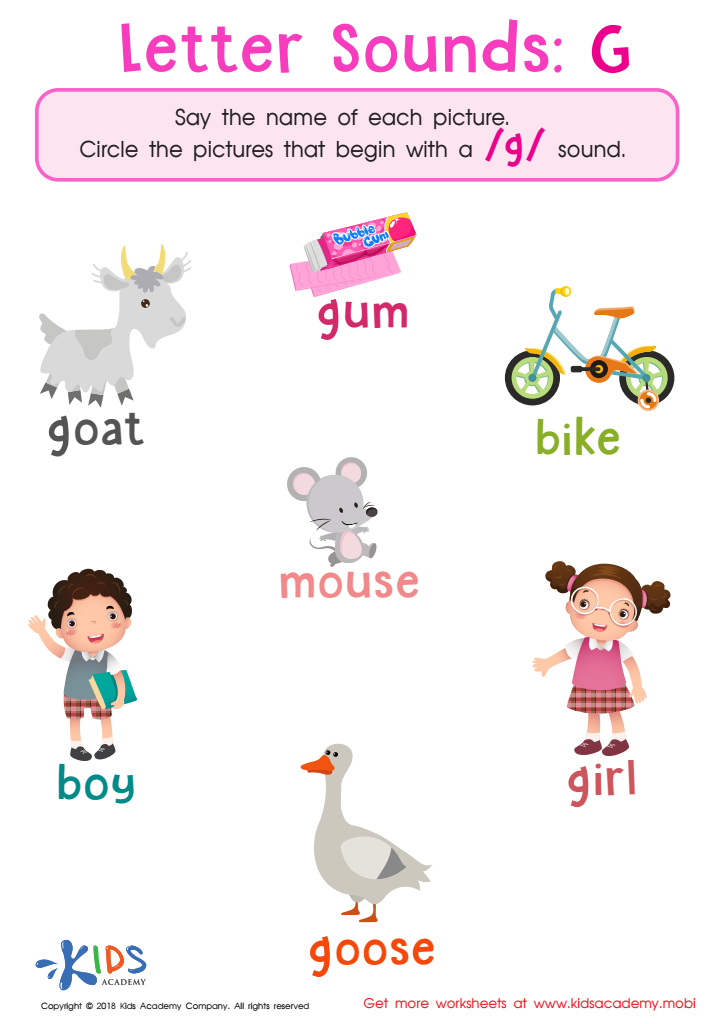

Letter G Sounds Worksheet
Parents and teachers should be deeply invested in reading skills development, particularly through approaches like Normal Phonics, because proficient reading lays the foundation for all future learning. Reading is not just about recognizing words; it's essential for understanding content across subjects, fostering critical thinking, and developing communication skills. Normal Phonics, which emphasizes the relationship between letters and sounds, is particularly effective for young learners, enabling them to decode words and build vocabulary.
Children with strong reading skills generally perform better academically, boosting their confidence and curiosity. Conversely, those with reading difficulties may experience frustration and disengagement, which can lead to long-term challenges in school and life. By prioritizing phonics instruction, parents and teachers can equip children with essential strategies that enhance their reading fluency and comprehension from an early age.
Moreover, early investment in reading skills contributes to lifelong habits. When children become proficient readers, they are more likely to enjoy reading and seek knowledge independently. This enthusiasm not only supports academic achievement but also fosters a love of learning that extends beyond the classroom, empowering students to become informed, engaged citizens.Therefore, supporting phonics development should be a top priority for anyone invested in a child's education.
 Assign to My Students
Assign to My Students














